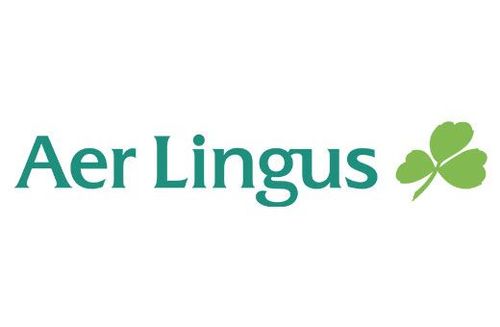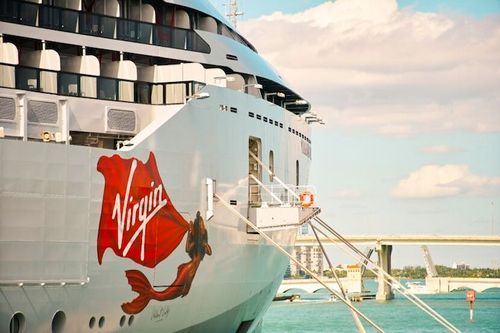Where travel agents earn, learn and save!
News / Tourism strategies to aide the travel recovery
Various strategies that tourist boards can employ to encourage the reactivation of travel to their destination

With the travel and tourism industry gradually recovering from the devastating impact of the Covid-19 pandemic, destinations are aiming to take advantage of a pent-up appetite for foreign holidays. ForwardKeys’ Market Research Manager, Luis Millan, discusses the various strategies that tourist boards can employ to encourage the reactivation of travel to their destination.
One of the key measures that governments have adopted to control the spread of the coronavirus is the limitation of international mobility. This has manifested itself in testing and quarantine requirements with fines for failure to comply, lists of countries deemed ‘high risk’ and the closure of borders for non-essential travel – all of which have impacted on demand and supply.
As an example, ForwardKeys’ air ticketing data reveals that British travellers’ destination choices shifted in response to successive updates to travel restrictions imposed by the UK government in the 2021 summer season.
While restrictions prevented would-be tourists from travelling, the prevailing conditions in the destination had a considerably weaker impact on demand. Growing demand for Greece in the first half of the year coincided with an alarming increase in Covid-19 cases in the country.

Figure 1: Evolution of tickets issued for arrivals in Greece to COVID19 risk indicators
This suggests that, with people having now adjusted to the realities of living through a pandemic, a strong appetite for travel prevails. Against this background, policymakers, destinations, and other industry stakeholders have a vital role to play in ensuring the safe and sustainable reactivation of international tourism.
ForwardKeys has noted a range of strategies that destinations have employed to mitigate the impact of the global health crisis on their tourism performance.
Rebuilding consumer confidence
Among the major Mediterranean destinations for summer 2021, it was Greece that came out on top. By the end of the high season, the country’s travel performance was significantly closer to 2019 levels than any of its regional competitors.

Figure 2: International summer arrivals in Mediterranean destinations
One of the main contributing factors to Greece’s summer success was its communication strategy.
Early in the year, authorities announced plans for the country to reopen, and, crucially, they stuck to their word. As early as late February, ticket sales for the summer holidays in Greece were experiencing an uptick. Successive high-profile announcements accelerated this trend, helping to consolidate demand for Greece over its competitors at a time when the virus was rampant in both the destination and its key source markets.

Figure 3: Evolution of tickets issued for arrivals in Mediterranean destinations
This is further evidence that a desire to travel persists despite border closures and high Covid-19 case rates.
“To capitalize, destinations must remain relevant, prioritizing clear, consistent communication and announcing intentions to reopen early enough to build consumer confidence and anticipation,” says Luis Millan.
Market diversification
Another relative success story of Covid-era travel is Turkey. As figure 2 shows, the Anatolian nation was one of the top Mediterranean destinations for summer 2021, attracting 62% of its summer 2019 traveller volumes.
Turkey achieved this by adopting an open-door policy in June 2020, welcoming visitors from many major origin markets throughout the year. Then, in June 2021, it adopted a vaccination-friendly strategy, exempting fully inoculated travellers from further testing.
Despite reporting an increase in cases in July, which complicated matters for travellers returning from key markets such as the UK, Turkey managed to attract a well-balanced mix of visitors from neighbouring countries in the Middle East, European markets and even the United States.

Figure 4: Summer arrivals in Turkey: top origin markets
Turkey’s success demonstrates that market diversification is an effective means of nurturing tourism recovery in a fast-changing travel environment.
The process also involves considerable effort, however: maintaining an extensive connectivity network, deploying a proactive communication strategy, tapping into less-developed markets, and adopting travel-friendly policies are just some of the steps that destinations should take to achieve success with this method.
Open-door travel policies
Heavily reliant on tourism like many other Caribbean nations, the Dominican Republic elected to open its doors to travellers from around the world – without requiring testing or quarantine on arrival. This seemingly lenient approach was reinforced by a national plan to promote Covid-19 safety measures within the local tourism sector, comprising random testing, thorough hygiene protocols and the vaccination of hospitality workers.
Although some governments imposed travel requirements on tourists returning from the Dominican Republic, the lack of restrictions on entering the country helped to attract visitors from both sides of the Atlantic.
In a pandemic, an open-door travel policy represents a considerable threat to public health and consequently must be supported by a strict set of measures to mitigate that risk.
Yet the approach also offers a clear competitive advantage. “To ensure that they retain their popularity when restrictions are eased in other parts of the world, open-door destinations should focus on building customer loyalty,” adds Millan.
Vaccination-friendly policies
The onset of the Covid-19 crisis aside, 2020 was defined by the ‘vaccine race’ between pharmaceutical companies. This was followed in 2021 by a race between countries to inoculate their citizens, which saw Israel take an early lead with half of its population double jabbed by April.
Meanwhile, top-tier European destinations including Greece, Turkey, Spain, and Italy were introducing vaccination-friendly policies ahead of the Northern Hemisphere’s summer holiday season.
In late May, the Spanish government declared its intentions to reopen in early June to vaccinated tourists regardless of their origin country, immediately triggering a wave of bookings from Israeli travellers.
ForwardKeys observed similar behaviour when other destinations lifted restrictions for double-jabbed tourists, with Turkey a noteworthy example.

Figure 5: Tickets from Israel to Turkey and Spain
Some international destinations have even benefited from ‘vaccination tourism’. For instance, from the second quarter of 2021, travellers from Latin American countries have been visiting US states such as Florida and Texas to take advantage of local policies that allow non-residents to receive the vaccine.
While welcoming vaccine tourists is a clever way of promoting inbound travel recovery, the trend highlights a sad financial reality behind the global fight against the pandemic: a lack of widespread access to vaccination in less-developed economies.
“Vaccine equity should be a common goal not only to ensure the reactivation of travel worldwide but also to protect the most vulnerable communities that rely on tourism to support their economic development,” says Luis Millan.
A multifaceted approach
As evidenced by the above examples, there is no single ‘correct’ solution for stimulating the reactivation of inbound travel. The destinations cited in this article have enjoyed demonstrable success with different strategies, suggesting that the best approach may be to combine elements from each.
Clear and consistent communication to inspire consumer confidence should form the basis of any destination’s plans to reopen, along with the enforcement of strict health and safety guidelines – particularly in the case of open-door policies.
Destinations may also benefit from tapping into new markets and expanding their connectivity network while adopting a vaccination-friendly policy is a proven way of encouraging tourism while minimizing risk to public health.
By following the blueprints of countries like Greece, Turkey and the Dominican Republic, destinations can expedite their travel recovery and, by taking additional steps to foster customer loyalty, help to ensure sustained success beyond the pandemic era.











